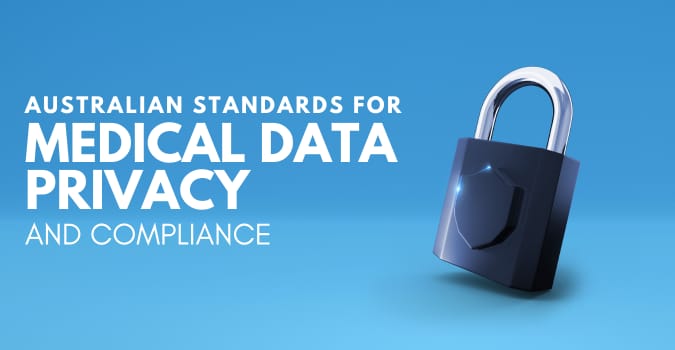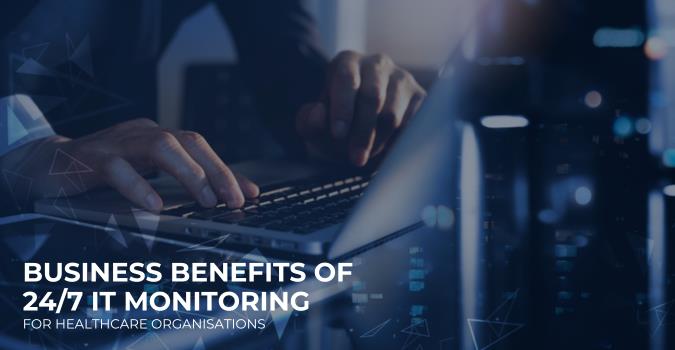Healthcare organisations rely on robust IT systems to manage patient records, facilitate telemedicine and support…

Australian Standards for Medical Data Privacy and Compliance
Medical data privacy and compliance are crucial for maintaining the confidentiality and security of patient information. In Australia, stringent regulations and standards govern the handling and storage of medical information to ensure patient confidentiality and data security. This article explores the Australian Standards for Medical Data Privacy and Compliance and provides insights into how healthcare providers can navigate these standards effectively.
Australian Standards for Medical Data Privacy and Compliance:
Privacy Act 1988
The Privacy Act 1988 sets standards for protecting personal information in Australia. Under this Act, patient medical documents must remain confidential, except when there is a need for legitimate access to these records. The Act applies to a wide range of organisations, including healthcare providers, and regulates how these organisations handle personal health information (PHI).
Australian Privacy Principles (APP)
The APP guidelines provide a framework for the handling of healthcare data in Australia. APP 11 imposes a legal obligation on entities to take reasonable steps to protect health data from interference, loss, and unauthorized access, modification, or disclosure. While there are no mandated IT security standards for handling health data in Australia, some specific standards have been developed, such as the Information Security Management in Health using ISO/IEC 27002 and the National eHealth. Compliance with these standards is voluntary.
My Health Record System
The Australian government’s My Health Record System is a central platform designed to store and manage individuals’ health information securely. Healthcare providers must comply with the My Health Records Act 2012. Which outlines the legal framework for protecting and managing health data within this system.
Health Practitioner Regulation National Law
The Health Practitioner Regulation National Law, in conjunction with the Australian Health Practitioner Regulation Agency (AHPRA), governs the registration. And accreditation of healthcare practitioners. Part of ensuring compliance involves safeguarding patient information. Healthcare professionals must maintain the confidentiality of patient records and adopt secure practices to protect against unauthorized access or data breaches.
Digital Health Cyber Security Centre (DHCSC) Guidelines
The DHCSC provides guidelines and resources specifically tailored to the healthcare sector. These guidelines assist healthcare organisations in implementing robust cybersecurity measures to protect against cyber threats. This includes recommendations for securing medical devices, protecting against ransomware, and ensuring the secure transfer of health information.
Healthcare Identifiers Service
The Healthcare Identifiers Act 2010 regulates the use of unique healthcare identifiers for individuals, facilitating accurate. And secure identification across the healthcare system.
Compliance with this act is crucial for healthcare providers to maintain data integrity and patient identification accuracy.
Compliance with State-Based Legislation
In addition to the federal Privacy Act and APPs, health service providers are also subject to state-based legislation. Such as the Health Records and Information Privacy Act 2002 in New South Wales. These state-based laws set specific requirements for handling health information and may vary depending on the jurisdiction.
Data Security and Privacy in Healthcare
Healthcare providers in Australia must ensure that they comply with important privacy legislation and frameworks. Such as the Australian Privacy Principles, HL7, FHIR, and CDA. Coreplus, a digital health provider, offers a secure messaging solution that connects healthcare professionals and referrers, ensuring compliance with these standards and best practices.
Conclusion
Navigating the landscape of Australian standards for medical data privacy and compliance requires a comprehensive understanding of the regulatory framework. Healthcare professionals and organisations must remain vigilant in adopting and updating security measures to safeguard patient information. By adhering to these standards, the healthcare industry in Australia can ensure the trust and confidence of patients while contributing to the overall resilience of the nation’s healthcare information infrastructure.
Fortifying the Foundations of Australian Medical Data Privacy Standards
In the complex landscape of healthcare, where the digital transformation of medical records is pivotal, ensuring compliance with Australian standards for data privacy is paramount. MedicalIT.Services emerge as a comprehensive solution, offering a range of IT Support Services to assist healthcare providers in navigating and meeting the stringent requirements of Australian medical data privacy standards. Contact us at 03 80808014 and get a 1-hour free consultation from our IT experts.



